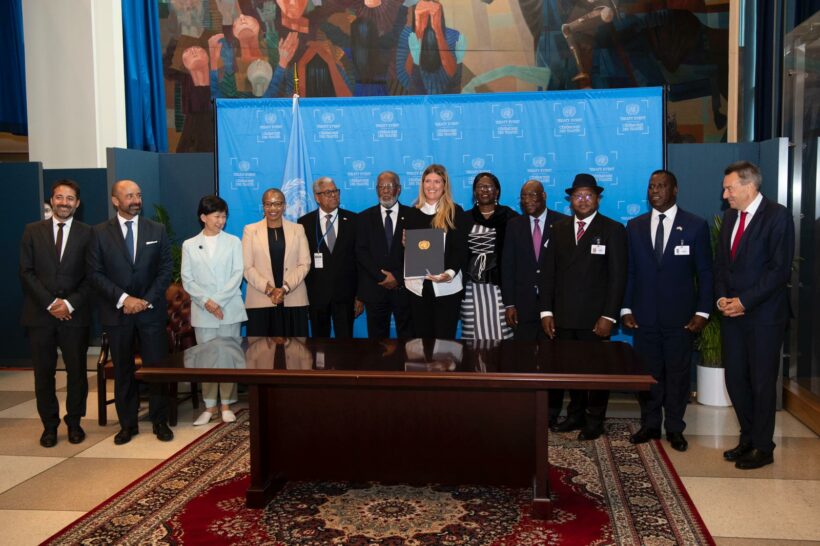With world leaders gathering in New York this week for the annual opening of the United Nations General Assembly – and against the backdrop of Russia’s latest nuclear threats – five more nations have signed the Treaty on the Prohibition of Nuclear Weapons (TPNW) and two more have ratified it. This brings the total number of TPNW signatories to 91 and states parties to 68.
The TPNW’s growing membership reflects the deepening concern of the international community at the existential threat that nuclear weapons pose to humanity. In June TPNW states parties declared at their first meeting in Vienna: “We will not rest until the last state has joined the treaty [and] the last warhead has been dismantled.”
By signing the treaty, the five countries – Barbados, Burkina Faso, Equatorial Guinea, Haiti and Sierra Leone – have taken a key step towards joining the treaty, while the Dominican Republic and the Democratic Republic of the Congo (DRC) have deposited their instruments of ratification with the UN secretary-general to become states parties.
The treaty actions took place at a high-level ceremony at the UN headquarters on Thursday, 22 September, officiated by Miguel de Serpa Soares, the UN under-secretary-general for legal affairs.
Beatrice Fihn, the executive director of ICAN, said at the event: “With more and more countries joining the nuclear ban treaty, we are taking significant steps towards the abolition of these weapons. As the number of countries signing and ratifying the TPNW grows, the pressure on the nine nuclear-armed states and their supporters to join the treaty grows.”
She added: “The strengthening of the treaty is particularly welcome at this time when the war in Ukraine has seen the risk of nuclear weapons use increase, and one of the world’s largest nuclear-armed states has made undisguised threats to use its arsenal with all the devastation that implies.”
The UN high representative for disarmament affairs, Izumi Nakamitsu, said: “Joining the TPNW sends a powerful signal of a state’s commitment to achieving our shared goal of a world free of nuclear weapons. But it is not merely a symbolic act. The decisions taken at the first meeting of states parties reflect a commitment to implementing the treaty comprehensively and thoughtfully.”
Peter Maurer, the president of the International Committee of the Red Cross, said: “The comprehensive prohibition of nuclear weapons is a crucial step towards their elimination, which is a vital responsibility of the international community as a whole. I commend those states who have made the courageous choice to sign or ratify this landmark treaty today.”






